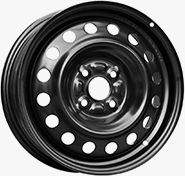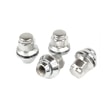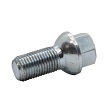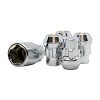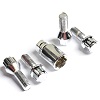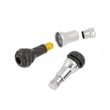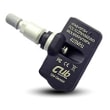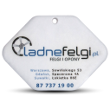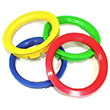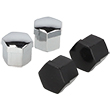Tires Michelin CROSSCLIMATE SUV XL 235/60 R17 106V
 17 YEARS ON THE MARKET
17 YEARS ON THE MARKET Together, we develop the Polish economy
 SECURITY
SECURITY Possibility of free order insurance - Trusted Shop Protect
 QUALITY CERTIFICATE
QUALITY CERTIFICATE Alloy wheels have ISO, VIA JWL certificates proving their high quality
 GUARANTEED QUALITY
GUARANTEED QUALITY Aluminum Rims are covered by a 3-year warranty
 STATIONARY SHOPS
STATIONARY SHOPS Opportunity to look at the goods closely, direct contact with an expert
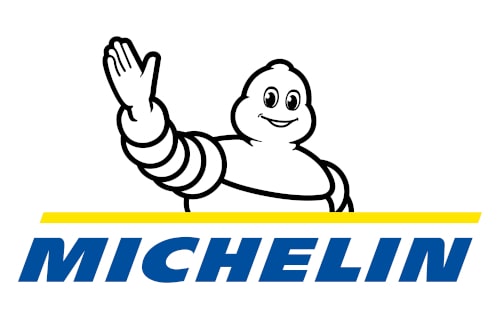
Tires Michelin CROSSCLIMATE SUV XL 235/60 R17 106V
The Michelin brand is a premium tire manufacturer that uses advanced technologies to ensure the highest level of safety. The use of state-of-the-art technological solutions guarantees excellent grip and braking performance in various weather conditions. The tires are also designed for maximum driving comfort, achieved through noise and vibration reduction, significantly enhancing the driving experience.
The Michelin CrossClimate tire is available in size 235/60 R17 106V. The tire size can be read as follows:
- Width (235) - this is the tread width given in millimeters.
- Profile (60) - this is the percentage ratio of the tire height to its width. With a width of 235 (mm) and a profile of 60 (%), its actual value will be 141 mm.
- Rim Diameter (R17) - on which the tire can be mounted. The prefix R indicates a radial tire.
Indexes of value 106V allow driving at a speed of up to 240 km/h, with a vehicle not exceeding a weight of 950 kg per wheel.
The tire has a compound that allows for year-round driving, avoiding seasonal tire changes. This solution is ideal for temperate climates with little snowfall and temperatures not dropping too far below zero.
Energy label C B 70 dB
Each tire has its own label, from which you can read its basic parameters: rolling resistance, wet grip, and noise level in decibels.
Rolling resistance / fuel consumption - indicates the impact of tires on the vehicle’s fuel consumption. It is rated from "A" to "E", and the difference in fuel consumption is about 7.5%.
Wet grip / braking performance - rated from "A" to "E". It represents the braking distance of your car on a wet surface.
External rolling noise - indicates the noise level produced by the tire. Noise can be classified in three classes from "A" to "C", where A means low level and C means high level. In addition to the classes, a value in decibels is also shown, where a difference of 3 dB actually means twice the noise.
Besides the above data, each tire is described by a size parameter, which you will find on the label as well as on the tire sidewall.
Tech specs:

Tire size: this is the tire size designation, for example 225/45 R18:
225 – tire width in millimeters,
45 – aspect ratio, meaning the sidewall height is 45% of the tire width,
R – indicates radial tire construction,
18 – inner diameter of the tire (rim size), expressed in inches.

Tire width: the measurement defining the distance between the tire’s side edges (measured in millimeters). Wider tires provide a larger contact area with the road, which can improve grip but may also increase rolling resistance and fuel consumption. Narrower tires generally perform better in wet and winter conditions but offer a smaller contact area with the road.

Tire profile: is the percentage ratio of the sidewall height to the tire's width. A lower profile means a smaller sidewall height relative to the width – such tires usually offer better handling precision, but at the cost of comfort and increased susceptibility to damage. A higher profile provides better shock absorption and greater ride comfort, although it may slightly reduce cornering stability.

Tire diameter: the value given in inches that specifies the size of the rim for which the tire is intended. It affects the tire’s fit to the wheel and indirectly influences handling and ride comfort.

Tire manufacturer: a company responsible for designing and producing tires. Each manufacturer uses its own technologies and rubber compounds, which affect the quality, performance, and durability of the offered tires.

Tread pattern refers to the specific design of the arrangement of blocks, grooves, and sipes on the tire surface. Its construction affects grip, water evacuation, and noise levels, as well as the tire’s adaptation to different driving conditions (e.g., dry, wet, or winter surfaces).

The speed index is a letter designation that indicates the maximum speed at which a tire can safely operate while maintaining the allowable load. According to the law, a tire should have at least the speed index (and load index) recommended by the vehicle manufacturer. It is possible to use tires with a higher speed index, which is often permitted by the vehicle manufacturer.

The load index (also known as the load rating) is a numerical indicator that specifies the maximum permissible load a single tire can carry at the recommended pressure and within its speed rating. Each numerical load index corresponds to a specific weight (given in kilograms), e.g., 91 means 615 kg.

Tire season: indicates the weather conditions for which the rubber compound and tread pattern are designed. Summer, winter, or all-season. A compromise between summer and winter tires; they perform well in various climatic conditions, but in extremely hot or winter climates they are significantly inferior to dedicated tires.

The tyre label (EU label) is an official marking introduced in the European Union that provides information about the basic parameters of a tyre and its impact on safety and the environment.

In Poland, the PN-C94300 standard "Tyres – packaging, storage and transport" is in force. According to its guidelines, tires can be placed on the market, stored, distributed, and sold without restrictions for up to 3 years from their production date. The tires retain all their safety and performance properties.

Fuel efficiency (rolling resistance): rated from A (lowest rolling resistance, highest efficiency) to E (highest rolling resistance). A change of one class (e.g. from B to A) can result in 1–2% fuel savings. For someone driving around 30,000–40,000 km annually, this could mean saving several hundred PLN on fuel each year.

Wet grip
Indicated by letters from A (best grip) to E.
It affects braking distance and driving stability in rainy conditions.
A ↔ B: a difference of a few meters between classes.
A ↔ E: the difference can be several meters (up to around 18 m) at a speed of 80 km/h.

In the EU, noise levels are labeled with letters: A, B, or C (A – quietest). In addition to the letter, a specific value in decibels is given, allowing for more accurate comparison between tyres. A 3 dB difference equals a doubling/halving of acoustic energy (sound intensity), but our subjective perception of loudness changes noticeably only at around a 10 dB difference (then the sound seems about twice as loud or quiet).

Run on flat: (also known as RFT from “Run Flat Tires”) are tires with a special construction (reinforced sidewalls) that allows continued driving after a loss of pressure (e.g., in case of a puncture).




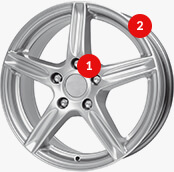

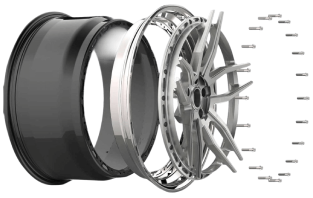
 Modern design
Modern design Perfect fit
Perfect fit High durability
High durability Free shipping within 24 hours
Free shipping within 24 hours
 Individual project
Individual project Dedicated caregiver
Dedicated caregiver